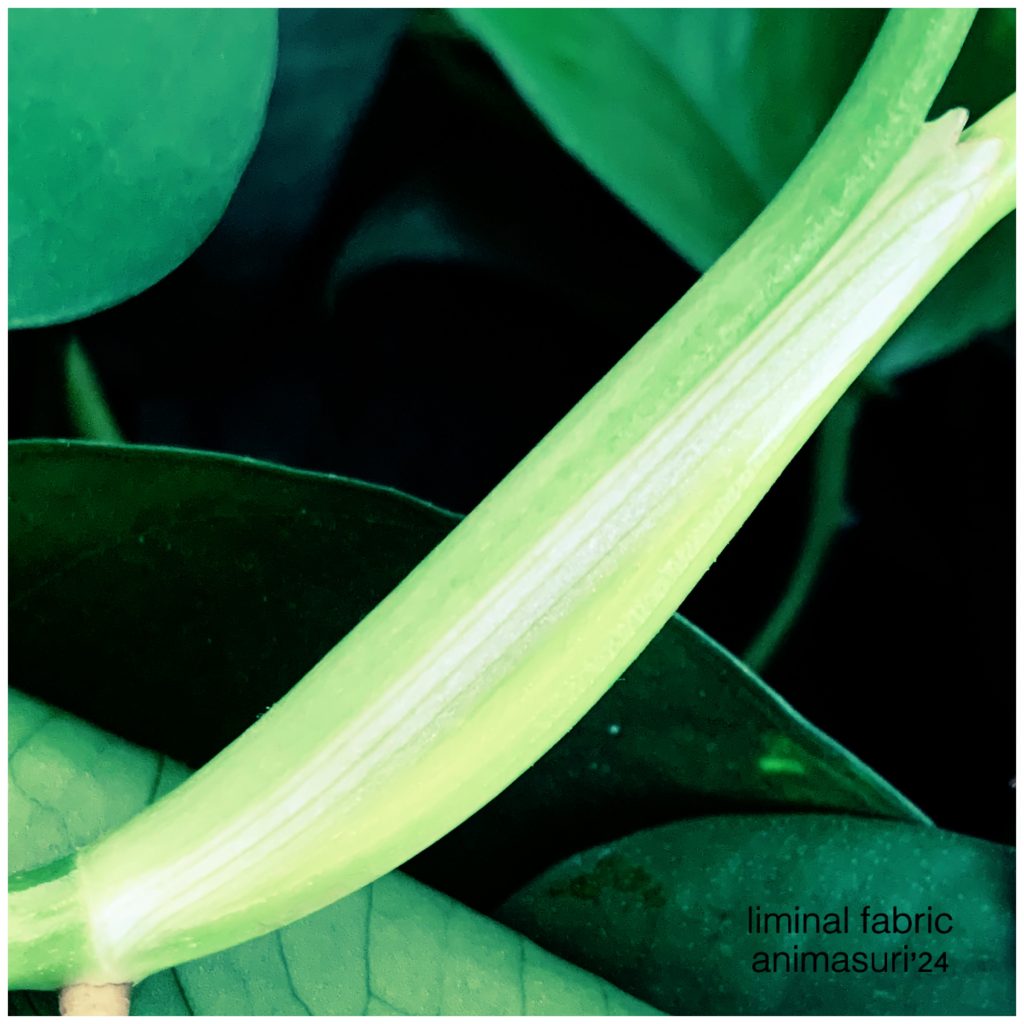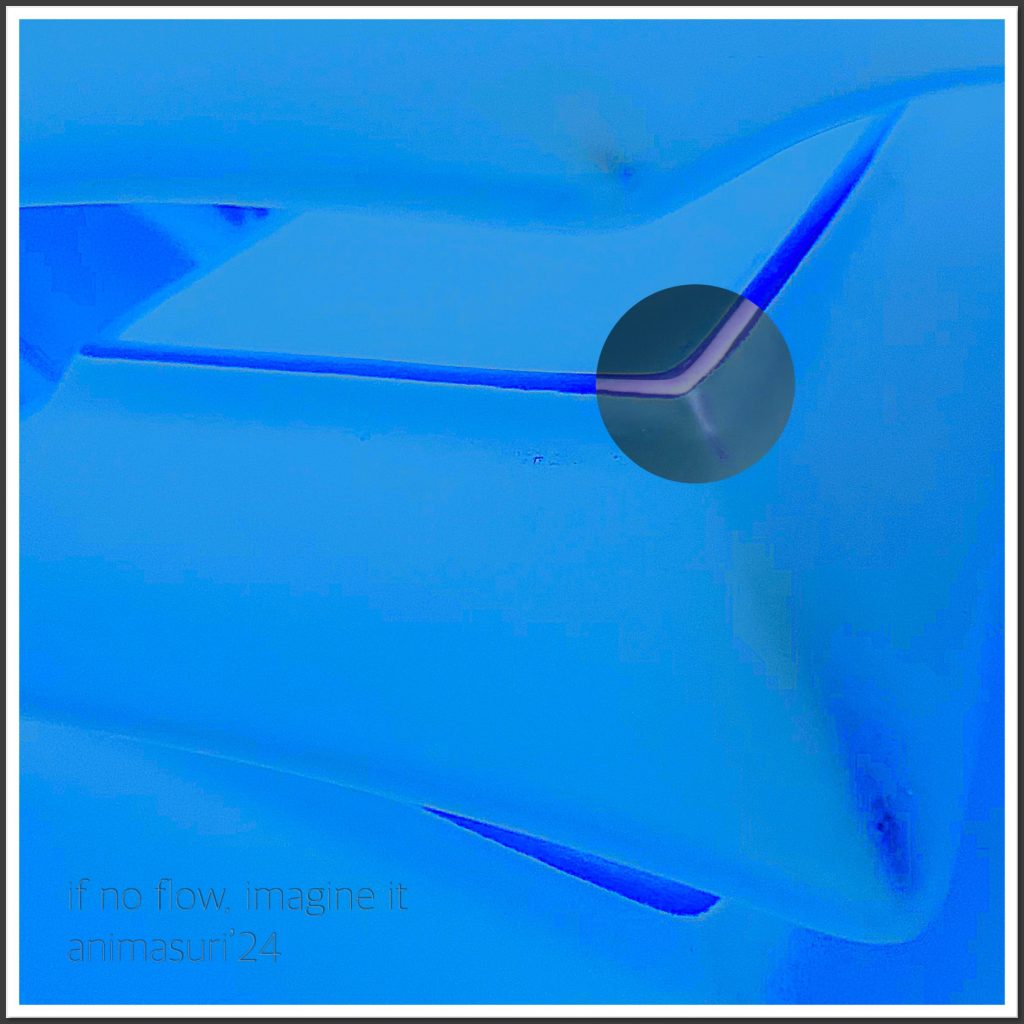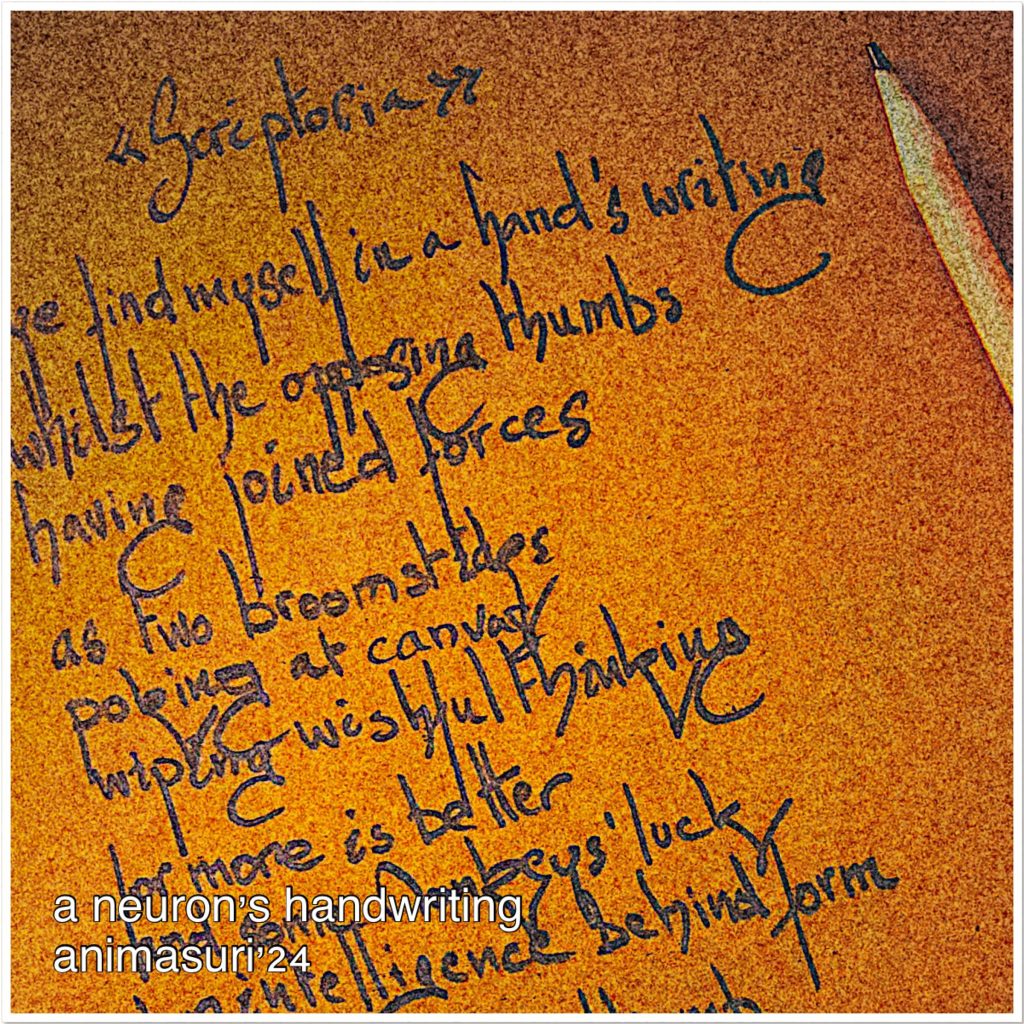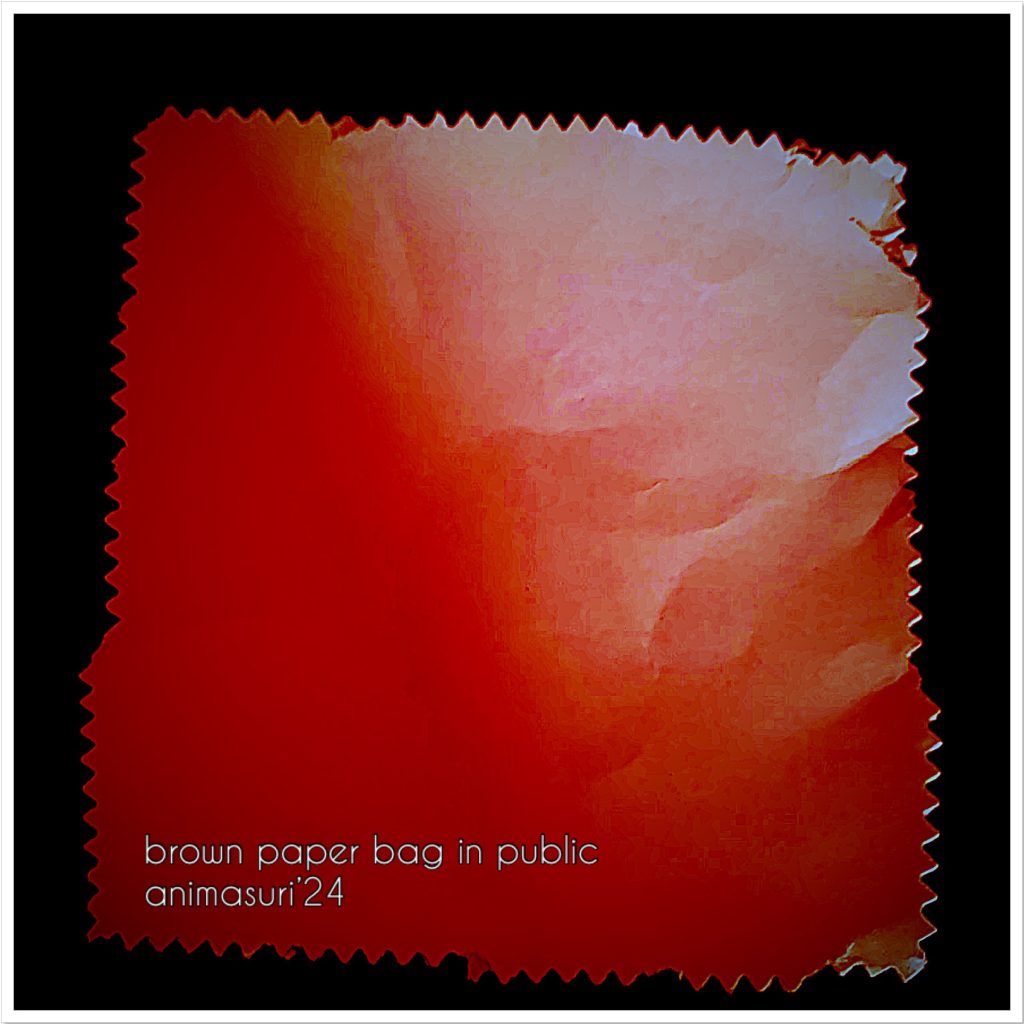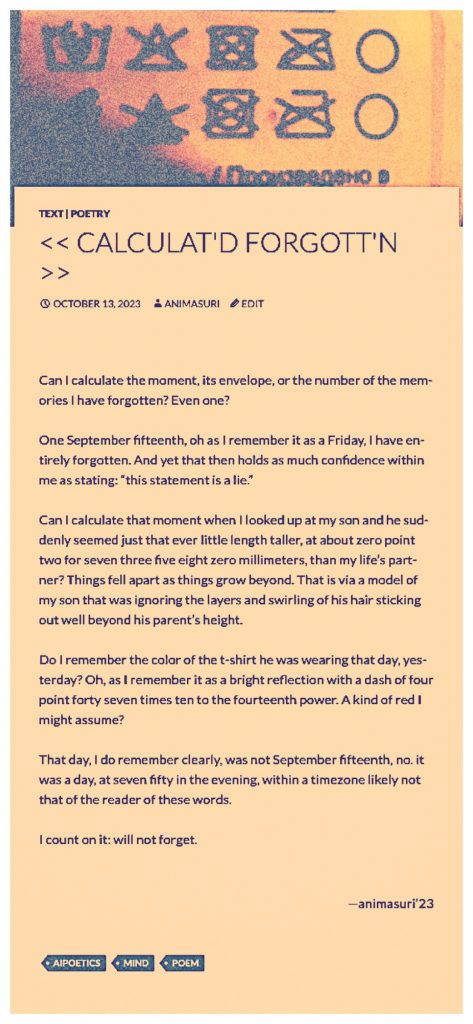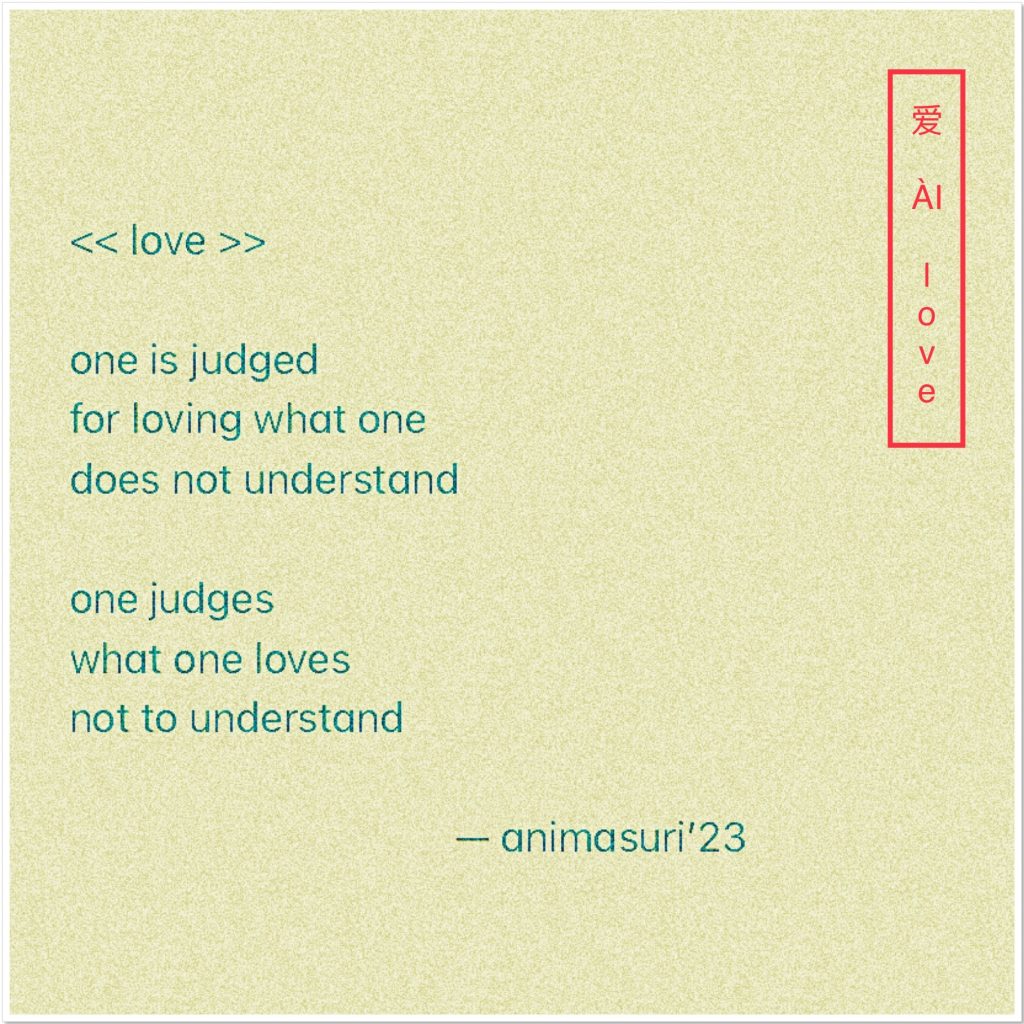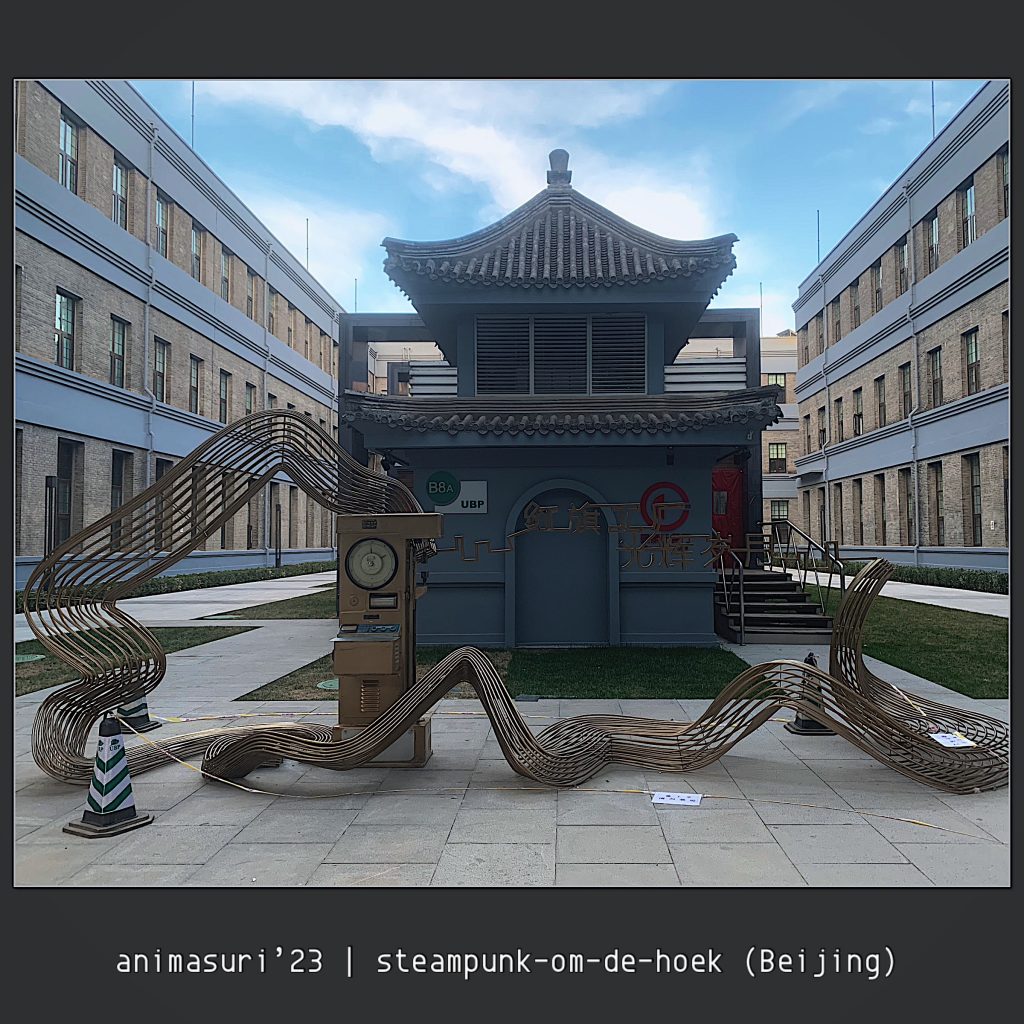If innovation is change
within the status quo
of those too great to fail
while staining set sequencing,
neuronormativity scaled to efficiency,
then algo-agendas are not set by the learner
would then sets of anti-algorithms,
purposely forsaking logic in transit,
popping bubbles outside the obvious
is that innovation
of people, with people, by people
is then innovation a philosophy of resistance
if so, who can flip a switch
on in-vitro-worlds
of subpar socio-digital derivatives
altering paths predefined
resetting the automated repeat button
of scaled “resetting to the year zero”
reinventing wheels while shifting baseline
adding to a syndrome, again to again:
powerplay veiled as insight with pseudo-criticality
enlightenments as excitin’mensch
centrisms with on and off switches
some humans or echoes in the loop
deciding to keep tabs
decided for, to leave the room
undecidedly unknowingly ignorant
where shall you be at
when one turns on the light
whatever it is, are you for it
—animasuri’24—-•
Triggers
AlgorithmWatch. (2023, Oct.). Can you break the algorithm? AlgorithmWatch releases an online game on algorithmic accountability journalism. Players act as a journalist who researches the details of a social network’s algorithm. https://algorithmwatch.org/en/ AND https://algorithmwatch.github.io/can-you-break-the-algorithm/#/
Allyn, B. (2024). Examining the growing movement against the algorithms that control our lives. Podcast: NPR. https://www.npr.org/2024/02/06/1229405652/examining-the-growing-movement-against-the-algorithms-that-control-our-lives
Broussard, M. (2020, Sep 8). When Algorithms Give Real Students Imaginary Grades. In-person final exams were canceled for thousands of students this spring, so computers stepped in — to disastrous effect. Online: Opinion, New York Times: https://www.nytimes.com/2020/09/08/opinion/international-baccalaureate-algorithm-grades.html
Chung, A. W. (2020). Subverting the algorithm: Examining anti-algorithmic tactics on social media. Master of Science Thesis, MIT. https://cms.mit.edu/wp/wp-content/uploads/2021/01/477814764-Anna-Chung-Subverting-the-Algorithm-Examining-Anti-Algorithmic-Tactics-on-Social-Media.pdf
Prof. Knox, J. (2024, Feb.). ‘Critical Studies of AI and Education’ online symposium. “resetting to the year zero” https://www.edtech.ut.ee/csaied/introducing-the-symposium/
New, J. (2019). Being Progressive Shouldn’t Mean Being Anti-Algorithm. Blog: Center for Data Innovation. https://datainnovation.org/2019/07/being-progressive-shouldnt-mean-being-anti-algorithm/
Dr. WSA. “purposely forsaking logic in transit“. Thank you.
into LinkedIn
Wenger, K. (2023). Is the Algorithm Plotting Against Us?: A Layperson’s Guide to the Concepts, Math, and Pitfalls of AI. Working Fires Foundation.
Additional References:
Airoldi, M. (2022). Machine Habitus. Toward a Sociology of Algorithms. Medford, MA, USA: Polity Press
Ciccone, M. (2021). Algorithmic Literacies: K-12 Realities and Possibilities. In Algorithmic Rights and Protections for Children. https://doi.org/10.1162/ba67f642.646d0673 AND https://wip.mitpress.mit.edu/pub/algorithmic-literacies/release/1
Dasgupta, S., & Hill, B. M. (2021). Designing for Critical Algorithmic Literacies. In Algorithmic Rights and Protections for Children. https://doi.org/10.1162/ba67f642.646d0673. AND https://wip.mitpress.mit.edu/pub/designing-for-critical-algorithmic-literacies/release/1
Fry, H. (2018). Hello World, Being Human in the Age of Algorithms. New York, USA: Norton.
Noble, S. U. (2018). Algorithms Of Oppression. How Search Engines Reinforce Racism. New York, USA: NYU Press
Phillips, L. L., Sarah Warren-Riley, S., Collins Bates, J. (2024). Grassroots Activisms Public Rhetorics in Localized Contexts. Columbus, USA: Ohio State University Press. (Open Access) https://library.oapen.org/bitstream/handle/20.500.12657/87743/external_content.pdf?sequence=1&isAllowed=y
Taylor, A. (2014). The people’s platform: taking back power and culture in the digital age. Toronto, Canada: Random House.
